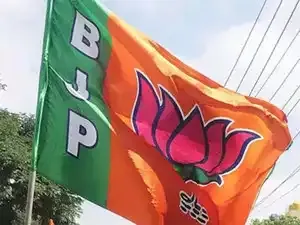
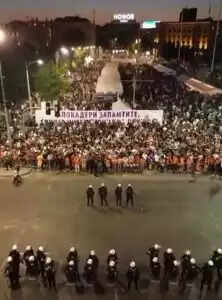 Protests in Belgrade
Protests in Belgrade
Belgrade: In a significant display of dissent, Serbian law enforcement faced off against over 140,000 demonstrators in Belgrade, marking one of the largest protests in recent history against President Aleksandar Vucic's decade-long governance.
The crowd, predominantly composed of students, surged into the capital, calling for immediate elections and denouncing what they perceive as an increasingly authoritarian regime, according to reports.
As chants of 'We want elections' echoed, police responded with tear gas and stun grenades, resulting in numerous arrests. Social media was flooded with chaotic scenes as security forces attempted to control the situation.
Vucic took to Instagram to assert, 'They aimed to overthrow Serbia, and they have failed,' accusing the demonstrators of trying to 'usurp' the nation.
Additionally, the Higher Court in Belgrade confirmed the detention of five individuals suspected of conspiring to overthrow the government.
The police minister condemned the violence, promising that those responsible would face consequences.
Despite the ongoing turmoil, President Vucic has consistently dismissed calls for early elections. His ruling coalition, led by the Progressive Party, currently holds 156 of the 250 parliamentary seats.
The persistent unrest has visibly unsettled Vucic's administration, with university closures exacerbating the political climate. Although his term extends until 2027, the continuous protests have cast doubt on his political future.
Vucic has maintained strong relationships with both Russia and the European Union, even as Serbia seeks EU membership. Notably, Serbia has refrained from imposing Western sanctions on Russia following its invasion of Ukraine.
Critics accuse Vucic's government of connections to organized crime, corruption, and the suppression of dissent, allegations that the administration denies.
The current wave of protests began in December, sparked by the tragic collapse of the Novi Sad railway station roof on November 1, which resulted in 16 fatalities.
This disaster, largely attributed to corruption and inadequate infrastructure, led to the resignation of Serbia's former Prime Minister and ignited public outrage.
As the protests wrapped up on Saturday, organizers played a recorded message encouraging Serbians to 'take freedom into your own hands' and signaling the crowd to take action.
In a statement on Instagram, protest leaders accused the government of opting for repression instead of dialogue.
'The authorities had ample opportunity to address the demands and avert escalation,' the organizers stated. 'Instead, they chose violence and repression against the populace. Any radicalization of the situation is their responsibility.'
-
IITs, IIMs, AIIMS Among 89 Institutes To Face UGC Show-Cause Notices Over Anti-Ragging Regulations
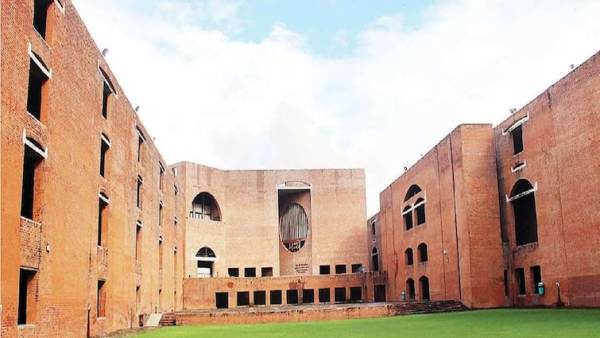
-
Amit Shah Rules Out Talks With Maoists, Vows To Wipe Out Naxalism By March 2026
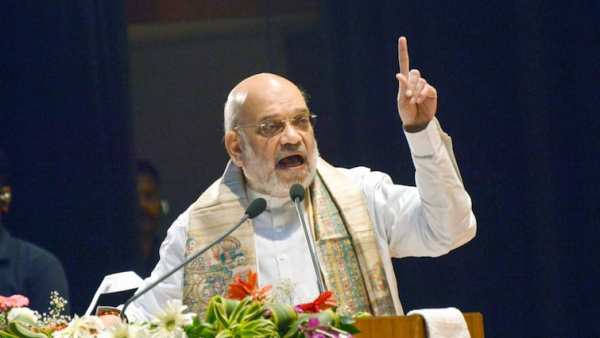
-
Does RSS Truly Accept Indian Constitution?: CPI MP Asks Bhagwat Amid Row Over Preamble Remarks
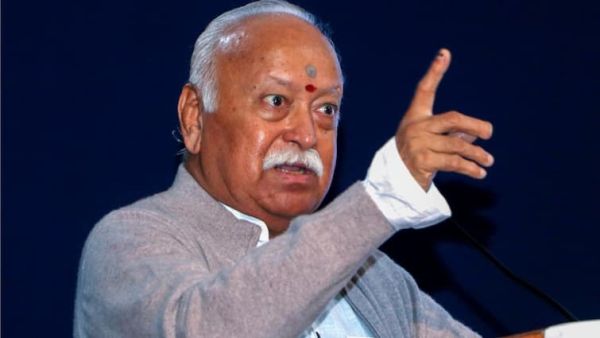
-
ABP Exclusive: Nitin Gadkari Addresses Murmurs Of Rift With PM Modi, Why BJP Hasn’t Named New Party Chief Yet
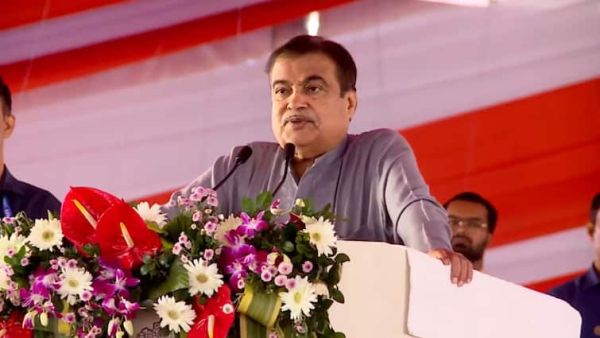
-
Former MLA to be elected Puducherry BJP chief unopposed on June 30
